Research, Education and Action Through Professional Organizations
Julia Cummings | School of Education and Human Development Jul 26, 2023CU Denver’s School of Education & Human Development’s emphasis on educational research differentiates us from other schools in Colorado and ensures that our students benefit from the latest methods and findings. Last fall and spring, more than 19 faculty, and 11 doctoral students participated in the American Association of Colleges for Teacher Education (AACTE) Annual Meeting and the American Educational Research Association (AERA) Annual Meeting and Annual Conference to present evidence-based findings, exchange ideas with other academics, encourage innovation, and actively work to improve education around the world. Topics ranged from policy to programming, equity to censorship, and early childhood education to alternative teacher preparation.
AACTE’s Annual Meeting, Feb. 24 – 26, Indianapolis, MN
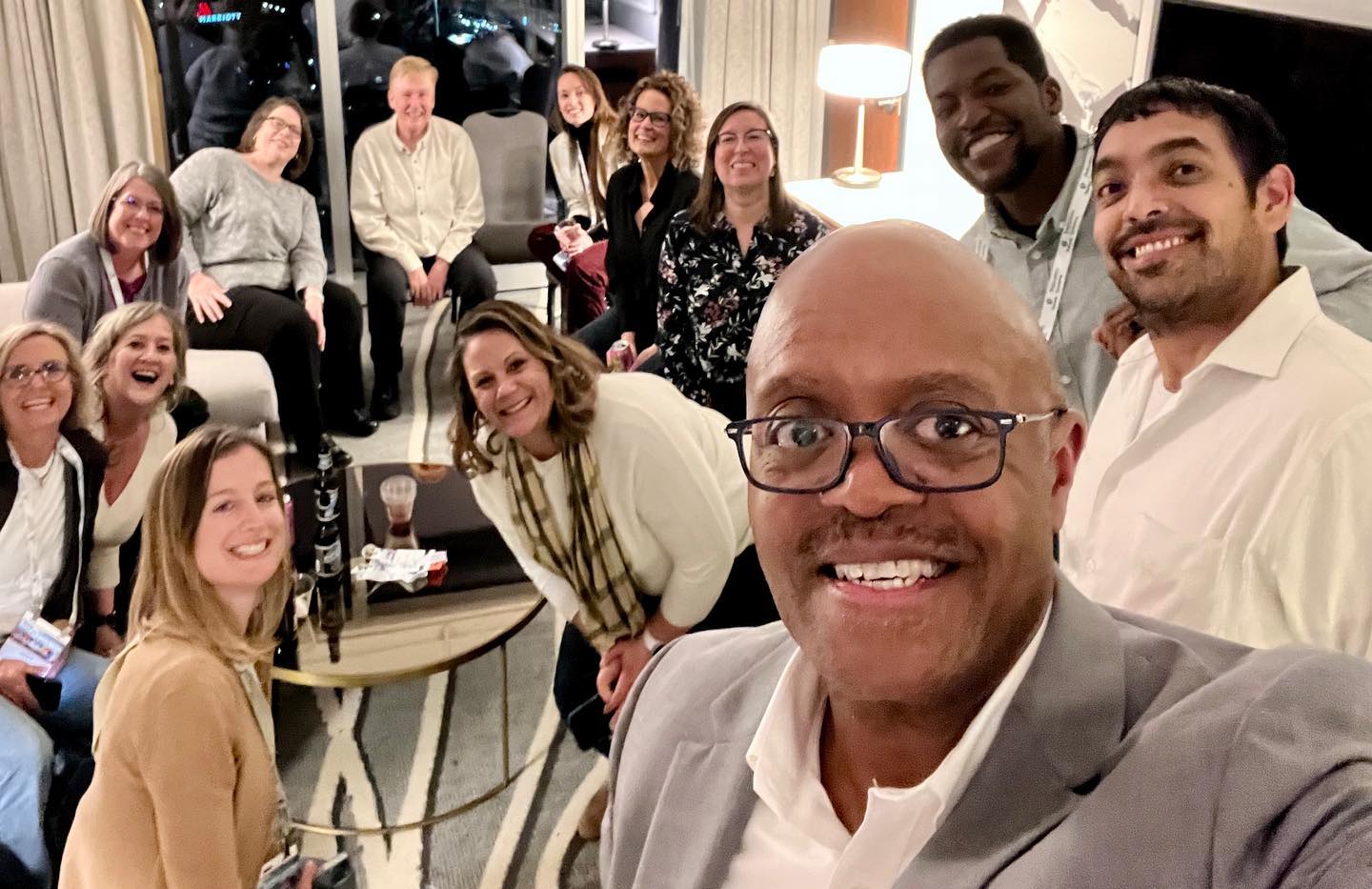
AACTE’s Annual Meeting, the premier educator preparation conference in the nation, provided an excellent forum for 15 SEHD faculty and three SEHD staff members to share research and practices and engage in meaningful discussions. Featured speakers included Lynn, AACTE Board of Directors member and Board secretary, who moderated a keynote session about preserving intellectual freedoms titled “Revolutionizing the Future: Emerging Scholars Consider the Impact of Academic Censorship.”
Suzanne Arnold, PhD, Executive Director of the ASPIRE to Teach alternative licensure program, was a featured speaker during an AACTE session titled “Understanding the Landscape of Alternative Preparation.” The session featured exemplary university-based alternative programs with innovative structures and practices that support alternatively licensed teachers of record in the field.
AERA’s Annual Meeting and Annual Conference
Approximately 17 SEHD faculty members and 11 doctoral students presented ground-breaking research during AERA’s annual meeting, April 13 – 16 in Chicago, IL, and AERA’s virtual annual conference, May 4 – 5, with the goal of positively impacting the field.
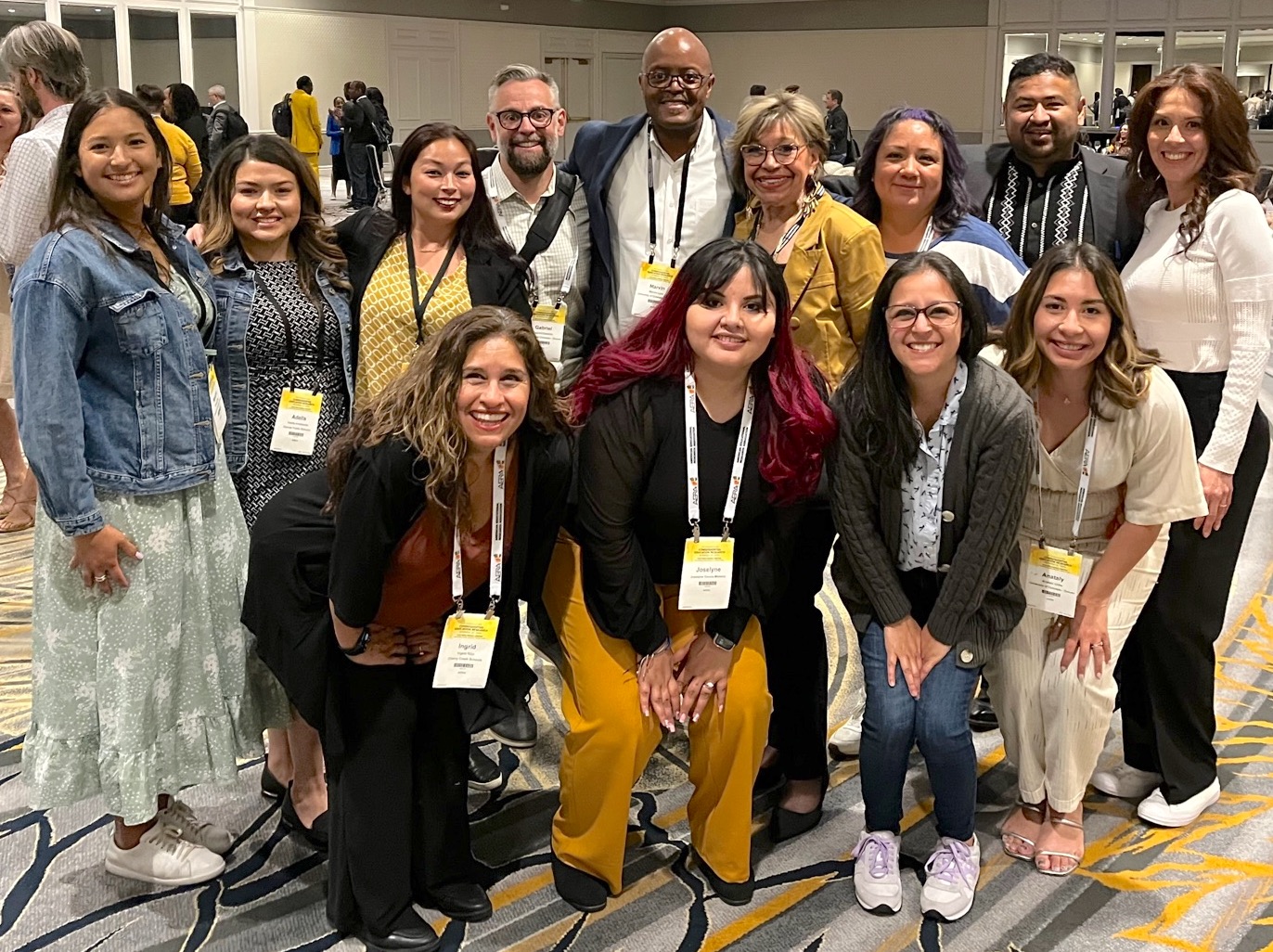
Lynn spoke at three AERA sessions titled “Examining the Pathway to a College of Education Deanship: Expectations, Challenges, and Rewards,” “Interrogating and Reauthoring Savage Inequalities: Exploring Urban Educational Environment Truths Through Community Cultural Wealth,” and “Coalition of Black Education Deans - Truth and Consequences: Leading in a Post-Truth Era.” During one of the sessions, Lynn and Margarita Bianco, EdD helped introduce the Handbook of Research in Teachers of Color and Indigenous Teachers edited by Conra Gist and Travis Briston to the conference attendees. In addition, Dean Lynn cohosted the AERA Colorado reception filled with laughter and supportive conversations.
Robert Allan, PhD, teamed with Courtney Donovan, PhD, to produce a paper titled “A Rasch Analysis of the Psychological Well-being Measure.”
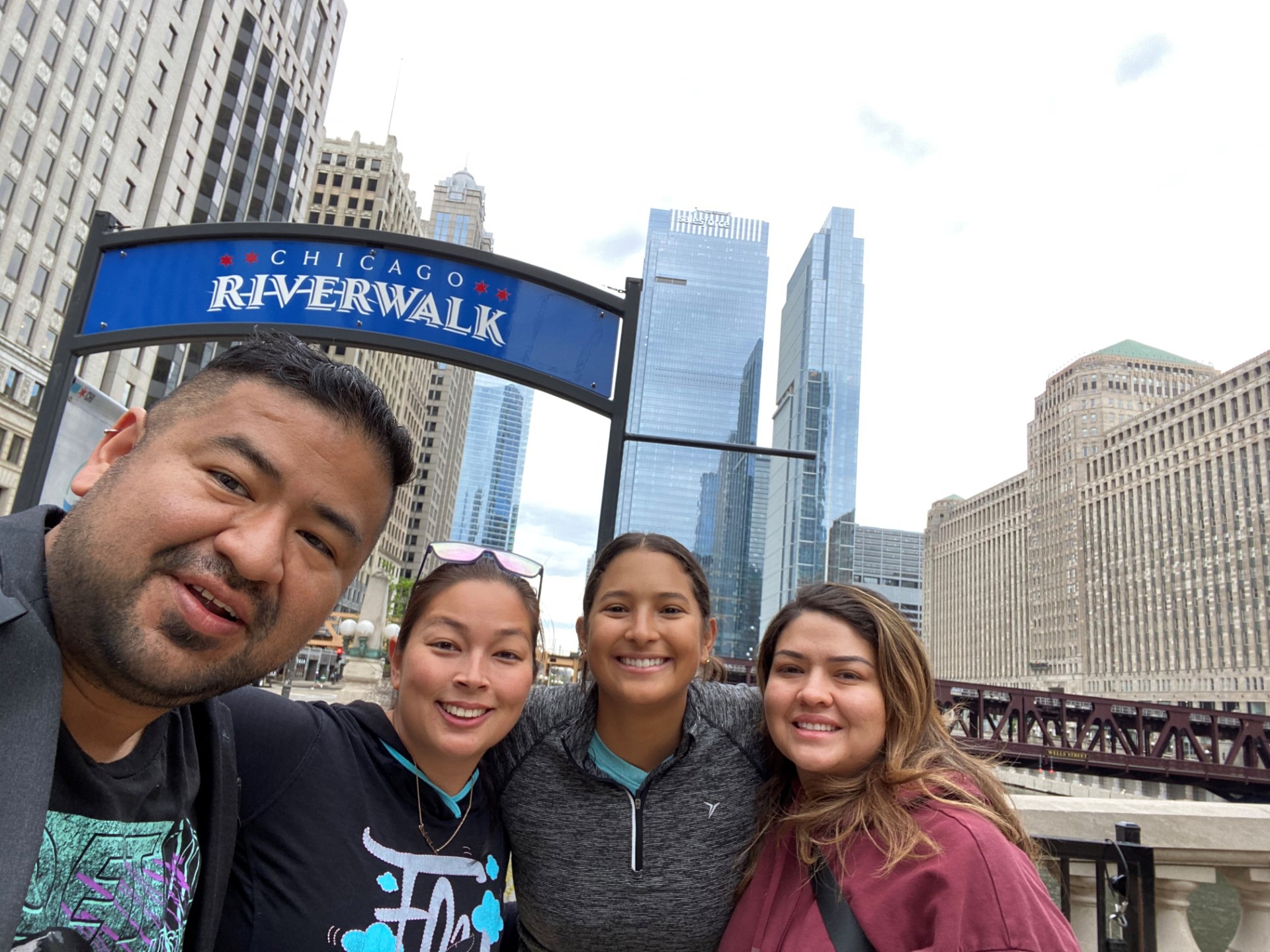
Robin Brandehoff, PhD, and doctoral student and alumni presenters Jessica Luna, Gabriel Castaño, EdD, Melinda Rossi and Valerie Richmond presented “‘They’re All Faculty of Color’: Faculty Mentors of Color Getting Student Voices to the Table.” Doctoral students of color who attended the conference to support this presentation included: Adella Arredondo, Betty Delgado, Joselyne Garcia-Moreno, Junior Reina, Ingrid Rizzo, Valerie Richmond, Melinda Rossi, Nacarid Silva, and Anataly Uribe.
Scott Bauer, PhD, and his coauthors presented two papers. The first paper, titled “School and District Adaptations to the COVID-19 Super-stressor,” explores how theory informs what changed and what was preserved in the pandemic as a case of extreme environmental change. The second paper coauthored with SEHD doctoral alum Catherine Wilson, titled “Does Mattering Matter? An Empirical Study at a Research University,” concerns faculty and staff members’ intention to leave.
Sofia Chaparro, PhD, Kathryn Schamu and Elena Bacmeister, member of Boulder’s Early Childhood Council of Boulder County, presented a paper titled “Language and Equity in a Montessori Dual Language Public School.” The goal of this study was to ascertain teachers’ ideas around language and equity, given not only the unique Montessori instructional context but the larger socio-political context of an area undergoing gentrification.
Desa Daniel, PhD, and her co-authors presented a study called “A Narrative of Black Women Experiences as Chief Diversity Officers” which utilized critical phenomenology to explore how Black women arrived in their positions, their experiences serving in those roles, their future career aspirations. It offers recommendations on how to best support and retain Black women in these roles.
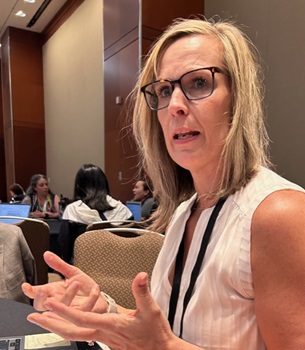
Susan Davis, doctoral student in the Leadership for Educational Organizations program, presented at the AERA Graduate Research Roundtable called Research in Progress. Her study seeks to examine a school district's implementation of a mindfulness-based program and their efforts to establish authentic community and family partnerships.
Courtney Donovan, PhD, Heather Johnson, PhD, and their coauthors presented two papers as part of their ITsCRITiCAL grant project titled “A Rasch Analysis of a Measure of Graph Selection and Reasoning for Dynamic Situations” and “Differential Item Functioning in Student Success When Modeled as a Latent Variable.” The paper Donovan led uses Rasch to verify that the authors’ graph reasoning framework forms a hierarchical scale. The study Johnson led uses Structural Equation Modeling to claim that there is a statistically significant relationship between students’ graph reasoning and graph selection.
Joni Dunlap, PhD, and Dennis DeBay, PhD, presented “Student Perceptions of Ungrading,” focused on the role of alternative assessment practices to support better learning outcomes.” Findings suggest that students associate the experience of alternative assessments with increased agency, enhanced engagement, creative and critical thinking, and learning from feedback.
Erica Holyoke and her co-authors presented two papers: “’Do the Little Things’ Do Something?: Preservice teachers’ wrestling with ‘truths’ about activism through picture books”, where findings imply the need for explicit opportunities and learning around the intersections of teaching critical literacy and activism as ways of being within and beyond the classroom walls, and “Exploring the Deprofessionalism and Dehumanizing Implications of Surveillance for New Teachers” which considers how first-year teachers experience surveillance in their professional lives and how these experiences are co-constituted with their shifting subjectivities.
Nancy Leech,and her co-author highlighted the benefits of mixed methods research in their paper titled “School Psychologists’ Use of Mixed Methods Research in the Field: A call for more mixed methods research and mixed methodological articles.”
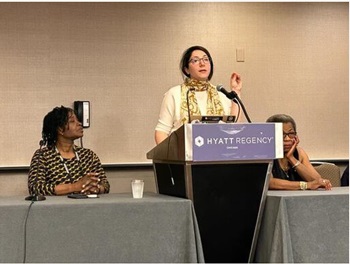
Julia Mahfouz, PhD, presented a paper with her coauthors titled “Promoting Wellbeing and Effective Leadership through Soul of Leadership Program” informed by the theory of transformative learning and the prosocial school leader model. This research identifies specific new professional development practices for school leaders and informs the development of professional development programs that promote effective school leadership.
“I was so pleased to see so many of our faculty engaging in important research, advocacy, and leadership efforts at both the AACTE and AERA meetings this year,” said Lynn. We are national leaders in multiple areas across a number of disciplines. Our team is currently working closely with AACTE leaders to ensure that next year’s meeting, which happens in Denver, provides participants with an opportunity to learn about the great work that is happening in the School of Education & Human Development at CU Denver.”